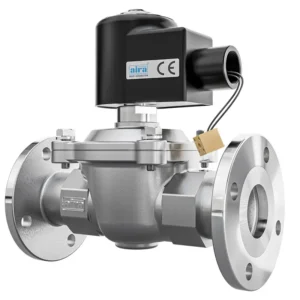Valves are essential components in countless industrial applications, ensuring smooth and controlled flow of liquids, gases, and slurries. While their purpose may seem straightforward, the reliability of these devices is crucial to maintaining safe, efficient, and uninterrupted operations. Whether in water treatment, oil and gas, manufacturing, or chemical processing, understanding common industrial valve failures and how to prevent them is vital for minimizing downtime, reducing operational costs, and extending equipment life.
Valve failures are often the result of mechanical wear, improper usage, environmental conditions, or poor quality components. Recognizing the signs early and adopting best practices can prevent costly disruptions. One of the most effective ways to avoid these issues from the start is by working with a knowledgeable and trusted valve supplier who understands the unique needs of your industry and can provide high-quality, application-specific valve solutions.

1. Leakage
Leakage is one of the most common and frustrating problems associated with valves. It can occur either internally, through the valve seat, or externally around the body, packing, or stem. Causes range from worn seals and corrosion to manufacturing defects or improper installation.
Prevention Tips:
- Choose valves with durable sealing materials compatible with your process media.
- Ensure proper torque and alignment during installation.
- Perform regular inspections and replace seals before significant wear occurs.
Partner with a valve supplier that prioritizes quality assurance and pressure testing.
2. Sticking or Jamming
Valves that stick or fail to operate smoothly can result in dangerous overpressure, inefficient flow, or complete system shutdowns. This issue often stems from rust, dirt, temperature fluctuations, or actuator misalignment.
Prevention Tips:
- Use filters and strainers to remove particulates from the media.
- Keep valve components lubricated where necessary.
- Inspect actuators and positioners routinely for alignment and responsiveness.
- Schedule preventive maintenance to detect early signs of blockage.
3. Corrosion and Material Degradation
Corrosive environments or incompatible process fluids can significantly reduce a valve’s lifespan. Corrosion weakens structural integrity and can lead to leaks, cracks, or full mechanical failure over time.
Prevention Tips:
- Select valve materials designed for your application (e.g., stainless steel, bronze, or coated alloys).
- Utilize protective coatings in highly corrosive conditions.
- Consult your valve supplier to ensure the best material selection for the media and temperature ranges.
4. Cavitation and Flashing
Cavitation occurs when vapor bubbles form and collapse within a valve, causing shock waves that erode internal surfaces. Flashing is when liquid rapidly evaporates, reducing valve efficiency and increasing wear.
Prevention Tips:
- Avoid excessive pressure drops across valves.
- Use specially designed anti-cavitation trims and valve types suited for high-differential pressure applications.
- Properly size valves with the help of experienced professionals.
5. Actuator and Control Failures
Automated valve systems rely on actuators to open and close valves as needed. Failures in these systems can result from misalignment, electrical faults, poor calibration, or wear over time.
Prevention Tips:
- Calibrate and test actuators regularly.
- Shield control systems from dust, moisture, and vibration.
- Inspect wiring, signal converters, and feedback loops as part of routine checks.
Why a Reliable Valve Supplier Makes the Difference
While prevention starts with proper maintenance, choosing the right valves from the beginning can greatly reduce failure risks. A dependable valve supplier doesn’t just sell hardware they offer guidance, technical expertise, and customized solutions for complex applications.
Aira Euro Automation has earned its reputation by delivering high-performance industrial valves that meet global quality standards. With decades of experience across industries, they offer not just products but long-term support and service.
Whether you need ball valves, butterfly valves, control valves, or pneumatic and solenoid valves, Aira Euro Automation ensures each unit is manufactured with precision and tested for reliability. Their ability to provide tailored solutions for challenging environments makes them a preferred choice among industry leaders.
When system uptime and process safety matter most, working with Aira Euro Automation gives you the assurance of proven performance and expert support.